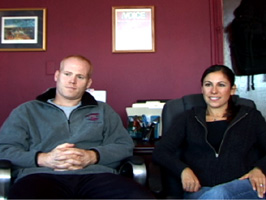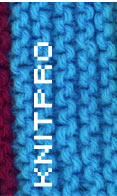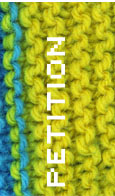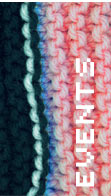 |
|
Interview
with Jim Keady and Leslie Kretzu
Co-Directors for Educating for Justice
Asbury Park, NJ
October 5, 2004
Co-directors Keady and Kretzu
lived for one month in Indonesia on the wage of
Nike apparel workers. Related links: educatingforjustice.org,
sweatthefilm.org
mR: microRevolt
LK: Leslie Kretzu
JK: Jim Keady |
|
mR: If you could start by
saying who you are and what Educating for Justice does.
LK: I am Leslie Kretzu and
this is Jim Keady and we are the directors of Educating for
Justice (EFJ). EFJ is a non-profit organization, based in
Asbury Park, New Jersey, that focuses on educating mainstream
Americans about social injustices. We provide justice-oriented
materials to the educational marketplace. At the moment, we've
chosen sweatshops as our focus. We are working on a full-length
feature film that will debut in 2005, focused on the issue
of Nike factory workers in Indonesia. In addition to the film,
we give presentations at colleges, high schools, union halls,
churches and community groups on Nike's labor practices. We've
given presentations at roughly 180 colleges and high schools
in the past 4 years.
In addition to EFJ Films and EFJ's Traveling
Classroom events, we're in the process of building out the
Resource section of our website. When complete, it will have
free educational resources such as teacher lesson plans, booklists,
film suggestions, and more. In general, the information that
we will showcase will be information on issues that most students
are not getting in their classrooms: issues of economic justice
and social justice like world hunger, global trade, nuclear
proliferation, human trafficking and more.
Among other things, our materials will offer
the viewpoint of the poor and marginalized. Readers will hear
first-hand from people who are directly affected by the particular
injustice profiled. For example, on the topic "sweatshops",
we'll have countless interviews with workers who produce for
major brands like Nike and the Gap. Eventually, we hope to
see that students gain better critical analysis skills when
exploring information that they receive from traditional sources,
such as the media, corporations, and governments - information
that they might get packaged in their textbooks in a very
sterile way.
mR: Do you feel like there
is an absolute lack of education about sweatshops? Like when
you go into high schools, do people know what that word means?
LK: We've found that people
have heard about sweatshops in a general sense, but most people
have no idea about the horrific conditions and the never-ending
anxiety that accompanies desperate poverty. We have seen that
there is a real void of information out there regarding sweatshops.
Unfortunately, students will hear about issues of social and
economic justice only if their teacher knows about the issue
and can find age-appropriate resources for students. We have
found only rare examples of institutionalized justice learning.
For the most part, it depends on the teacher and when that
teacher leaves, there is a complete void of this kind of information.
That's why EFJ is focused, in the long term, on providing
those educational resources for teachers.
mR: What do you hope that
students and teachers can do about this problem?
JK: In the long term, it's
a problem of establishing institutional mechanisms - government
institutional mechanisms - to ensure that sweatshops don't
exist. We saw in our own country's history that when people
got organized and the labor movement became a real force in
the United States, we saw positive change. For example, we
now have the minimum wage; we have weekends; we have an 8-hour
workday; we have health benefits.
All of these things were non-existent until
organized labor emerged as a real political force in the United
States. We've gotten those gains here in the U.S., but what's
unfortunate is that as we have evolved - as production has
shifted to places in the developing world - we didn't export
that learning process and export those values that we came
to cherish here. We have recognized that certain protections
are needed in the workplace (not only to insure the protection
of workers' rights, but also to increase productivity), and
it's like we forgot everything we learned, which to me as
an educator seems foolish. For example, if I learn something
through experience and I find out that I made horrible mistakes,
I'm not going to then let my students make those same horrible
mistakes all over again. I'm going to say "Here's what
I learned. Hopefully with this knowledge, you don't have to
go through the same pain and suffering." It almost seems
counterproductive from a common sense standpoint not to share
these commitments to a minimum wage and labor protections.
But it makes a lot of sense when the only thing you're focused
on is the bottom line and maximizing profits for shareholders.
mR: Maybe we should shift
now to some of the experiences that I'm sure you bring as
educators to the classroom. Could you talk about your experiences
with the Nike workers in Indonesia and also your film?
JK: I think that the best
place to start is to probably give a little background. Why
are we concerned about this issue, so passionate about it
and working on it on a full time basis? I got involved in
the sweatshop issue as a coach a St. John's University in
New York City back in 1997. At the time, I was coaching there,
St. John's had (and still has) one of the top men's soccer
programs in the country. In 1996, we had won the NCAA Division
1 national championship. We were shooting for a second championship
in '97 while I was a graduate assistant
soccer coach. At the same time that I was coaching with this
amazing team, I was working on a graduate degree in Theology.
In my first class "Moral Person, Moral Society,"
I decided on a whim to look at the Nike corporation and their
labor practices in light of what's called "Catholic Social
Teaching." And for me, this was just a research paper
topic, nothing really exciting. What I found was that if you
wanted to pick a company that violated everything that Catholic
Social Teaching was about, Nike was the perfect case study.
Ironically, at the same time that I was doing my research,
St. John's Athletic Department was in the middle of negotiations
with Nike on a $3.5 million dollar endorsement contract, part
of which would require me as a coach to wear and promote the
products.
In light of what I had learned about Nike,
I started to question this pending relationship, first privately
and then publicly. I raised questions like, "How can
we as Catholics in good conscience promote for a company that
has so obviously violated their workers' rights?" I eventually
took a public stand and said that as a Catholic in good conscience,
I cannot and will not be a walking advertisement for the Nike
corporation. Through my head coach, St. John's gave me an
ultimatum: you'll wear Nike and drop this issue or you get
out, end of story. So I was forced to resign.
That eventually became big news. It was on
HBO, ESPN, on the front page of the Metro section in the New
York Times, "God and Swoosh at St. John's." The
Associated Press picked the story up and then I started to
get invited to places to speak about this issue, as the first
athlete or coach in the world to say "no" to one
of these endorsement contracts because of Nike's exploitation
of workers in the developing world.
When I would speak at these different colleges, people would
tell me that I didn't know what I was talking about; that
those were great jobs in those countries; and that you can
live like a king on a dollar a day in a place like Indonesia.
So I decided: I'm going to go find out for myself. I approached
Nike and I said I would like to work in one of their factories
in Southeast Asia. I said I wanted to work for a month. They
said a month won't be long enough, you'll just finish your
training and you'll have to leave, so you won't be productive
for us. They said I don't speak any Southeast languages and
that would be a problem. And, they said, you'll
displace a worker and we care about our workers.
So I wrote them back and I said, I'll go for
six months, I'll go for a year. Tell me how long you think
I need to go to understand what's going on there. I said you're
right, I don't speak any Southeast Asian languages but I do
speak Spanish, you can send me to one of your factories in
Mexico. And I understand that I would displace a worker so
I found a group here in the U.S. that's agreed for the worker
I displace, they'll fly that worker to the United States and
give them room, board and a stipend. They can take my place
in a sense, and do whatever they want while I take their job.
Nike wrote back a one-line response: "We're not interested
in your counter offer."
So now I'm still stuck with the challenge:
how do I get other athletes, coaches, and students who have
maybe heard about this issue, to really get it. I wanted them
to understand it more than they would an article for a research
paper. I wanted them to understand it in real human terms
- to really flesh this out in a context that they can relate
to. So I said, if I can't work in one of Nike's factories,
I can certainly live with the workers. What better way to
get to understand somebody's reality than to live with them.
So, I designed a research project along with Leslie, where
we went and lived in Tangerang, Indonesia (an industrial suburb
outside of Jakarta) for one month. And for that month, we
tried to live on the highest basic wage we could find that
was being paid to Nike workers. At the time, it was a $1.25
a day.
We lived in a rat-infested slum for a month
and it was absolutely horrible. I lost 25lbs in the month,
and Leslie lost 15lbs. What was most important in doing this
experiment was the act of living in solidarity with the workers.
Workers began to trust us in ways that I don't think they've
trusted other researchers who sometimes just parachute in,
get their story for the paper that they're writing, and then
they're gone. We were there, and did our best to try and understand
their experience. The workers opened up to us in ways for
our film "Sweat" that people here have never seen
before. And the stories that were shared, and the depths of
the stories and the passion, and the anger, and the despair
and the hope that we found, I think people are really going
to relate to those universal themes that we all are touched
by in some way as human beings.
mR: And so, while you guys
were working with them, that's when the "Sweat"
documentary was being shot. So you went with the intention
of making this documentary?
LK: Well we went in 2000
to live on the wages of Nike factory workers, shoot a small
documentary and come back to the United States to do a 10-week
speaking tour. We've done that, but we've been on the road
for 4 years. We actually ended up going back to Indonesia
two more times, once with a professional film crew to get
better quality footage for the film when we realized we had
a major film in our hands and we needed to produce it in the
best way possible.
mR: So without giving away
what the film is about, what did you learn? What are you trying
to educate through this film? And more also about Nike in
particular?
LK: One thing that we really
want to do is to elevate Nike factory workers to the level
of expert on these issues, rather than having academics and
other CNN-style talking heads as the expert about sweatshop
conditions and what needs to be done for "those people"
(the workers). Workers will be able to tell the public exactly
what it is they need, and you can't argue with that first-hand
perspective, because they're living it every day. When you
have a worker say "I'm going into debt in order to meet
my basic needs," there is no way that a Nike executive
can argue against that and maintain credibility. We want to
juxtapose the public relations materials that major corporations
put out, with real stories from workers.
JK: I think one of the problems
that we face on a range of injustices- whether it's the sweatshop
issue, poverty, the war that we have right now- there is such
a lack of human connection. It's much more difficult to make
these glib statements about "those people" when
you know them. If they were friends of yours, would you say
"Well hey, that's their lot and they've just got to deal
with it. That's part of economic development." If that
was your brother or sister or your mother would you be so
dismissive of the injustice that they're facing?
And that's what I continually find, and again, going beyond
the sweatshop issue with our current global situation, the
stakes are way too high. We're not just talking about the
making of shoes, we're talking about the slow death of poverty
for hundreds of thousands of people. They're people. Just
like us. We just don't know them. And if we knew them on a
real human level, we probably wouldn't feel that it is ok
to do x, y, and z to them.
Bringing it back to the sweatshop issue, if
we knew the people that made our shoes and our clothes, for
one, we might be incredibly more thankful for the handicraft
work that they do, so that we can have cool stuff to wear.
But also, we would want to make sure that they were treated
well. They're not asking for a lot, they're asking to make
a wage that allows them to buy food, clothing, housing, basic
healthcare, education (for their kids) and modest savings.
To simply afford food, drinking water and a one-room apartment
would be a boost. That is not a lot to ask for when you're
willing to put in an 8 to 15 hour day, doing some tough manual
labor.
Since I started with this work, my goal has been to humanize
the lived reality of the poor. These human beings are not
just statistics in some economic study and they're not just
a case study in a research paper and they're not just someone
that you read about in a newspaper article. They are people.
mR: Do you think it requires
somebody like you to go over there with a film crew to expose
these conditions to a mainstream American audience?
JK: Yes. I think that, in
a positive light, the power of film is amazing. It's like
no other medium in that it really reaches people. You can
deliver information in a way that you can't deliver in a novel
or an article or a case study. Now what's disappointing is
that there have been a number of documentaries about the sweatshop
issue that are out there (short films - some good, some not
so good) that haven't galvanized people. As an educator, one
of the reasons I firmly believe that they haven't galvanized
people is that the people who are on the screen from beginning
are "foreigners" and people here in the United States
can't relate to them.
Now, we're not foreigners to people in the
US. So we're going to go to Indonesia, and you're going to
come with us on this virtual immersion. And automatically
that audience that we're looking to target is going to visually
relate to us. And they won't be able to just dismiss the information
from workers because "we're just like them". As
we start to go through this experience, we hope that they
will empathize with us. Now the next key point in the film
is transferring that empathy to the workers themselves. And
that's what we hope to do by being almost like guides through
this journey on trying to understand the sweatshop issue.
We'll be able to take that real deep empathy that we feel
for people "who are like us", and bring it now to
everybody, and in this case it would be Indonesians producing
sneakers and clothing for the Nike corporation.
mR: And once you have sort
of moved your audience, I have gone to your film and am moved,
I can free associate because I am also white, female, middle
class, and I have gained empathy, what do you hope it is going
to incite, how does this audience take away from what they
now know through that empathy?
JK: I think that's one of
the things that we do very differently. One of the shortcomings
of the movement - the anti-sweatshop movement or "pro-worker-justice
movement" as we like to say - is that the issue draws
feelings of deep empathy, but some groups leave people without
real action items. We've got to get beyond and into some concrete
things people can do. What can you do as a citizen? As an
athlete? As an educator? As a business person? Act 3 of our
film is our journey back here in the United States, using
a multi-pronged approach to try and move this corporation
to have more just labor practices and environmental practices.
All of the people we've met along the way that are using their
particular skill sets to create change will be showcased.
Whether you're a development economist, you're a congressional
representative, you're a rock star, you're a member of the
media, you're a student at a university or a high school,
you're an American working to support a family and raise your
children well – we hope that everyone leaving
the theater will say, "I can do something to help chip
away at the injustice that these people are experiencing."
By the end of the film, when we showcase different people
who are taking positive, concrete actions to change the situation,
we hope that every audience member can relate in some way.
Now they've got models for action.
And then, to follow that up on an even deeper
level: now is when you start to tie the different types of
multi-media together and our websites sweatthefilm.org, stopnikesweatshops.org,
and then our company website educatingforjustice.org, will
have this seamless theme. When people go to any one of those
sites, they will be plugged into different concrete actions
that they can take, one of which, the most concrete of which,
is just learning more. We hope that the film begs deeper questions
that we're not going to be able to get into in a 2-hour film.
You can't cover everything. So if we can just spark people's
interest, have them say "Wow what about this." Boom.
End of the film. Learn more: educatingforjustice.org. And
then, they've got that entry way into the deeper issues and
the resources, hopefully, at their fingertips.
|














